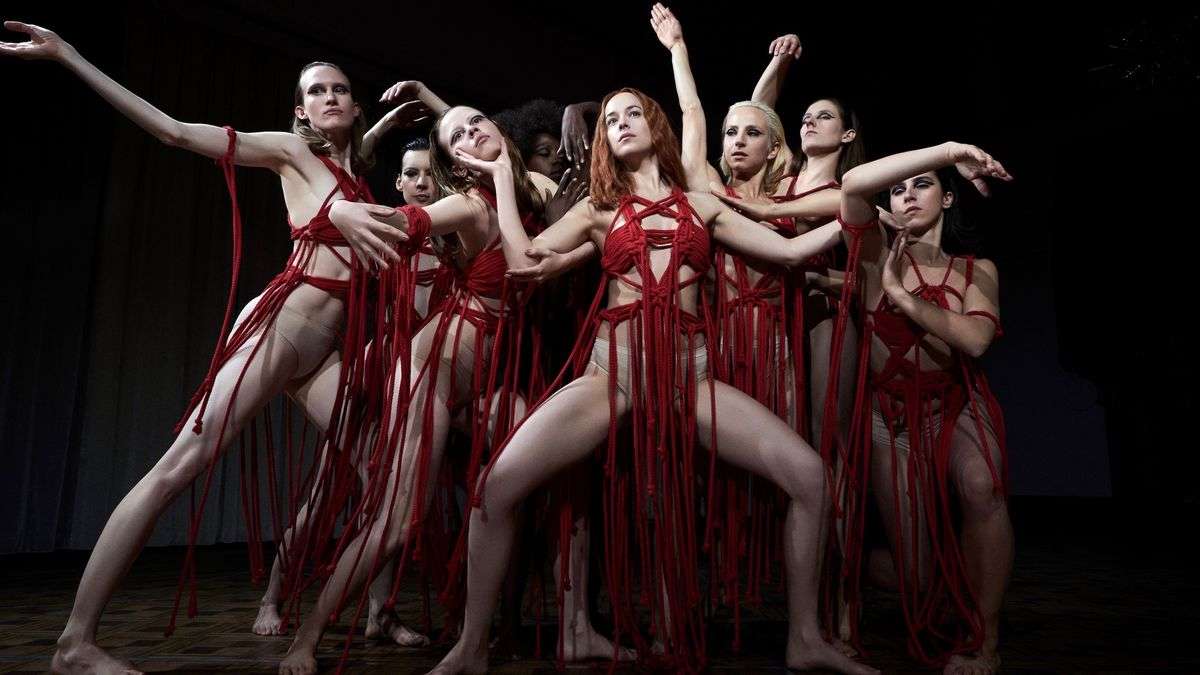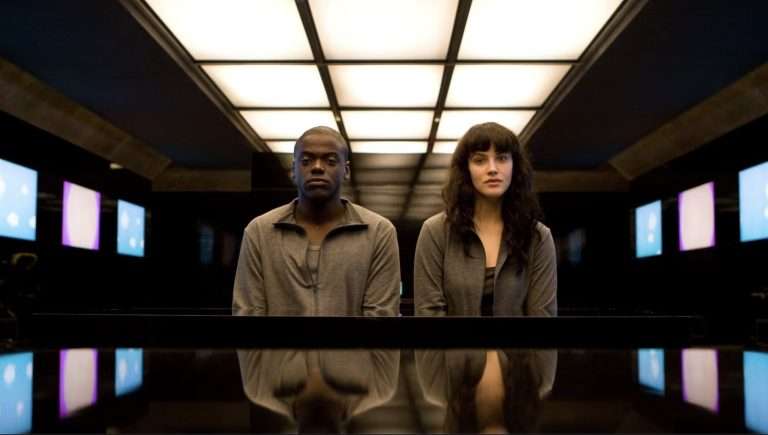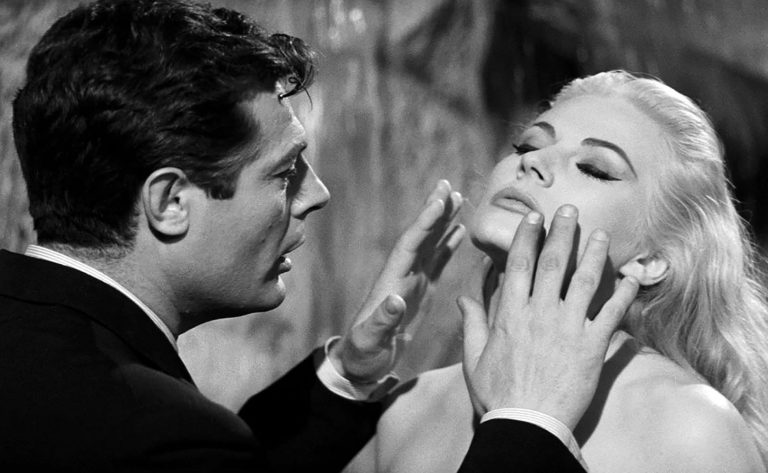Luca Guadagnino is a treasured specimen in the current landscape of arthouse cinema. He is one of the increasingly rare filmmakers capable of distilling the very essence of unconsummated desire into a palpable tension before bodies have even touched. Even rarer, though—and arguably more valuable—is the auteur’s penchant for energetic expression behind the camera that complements, rather than superseding, the subtleties of his chosen material. Uncommon is the Guadagnino film in which he’s actually taken part in shaping the screenplay, and yet his fingerprints lie on every single one of his projects, for better or worse.
At a moment when Italian cinema has relinquished its dominant grip on the art cinema scene, Guadagnino remains a bastion of his nation’s great storytellers. He wholeheartedly embraces the transnational realities of Western cinema today rather than pretending they don’t exist. From Milan to Maryland, Guadagnino’s footprint has touched many corners of the Western world, and his films all reflect this diversity of vision. In honor of the release of “Challengers,” here are all of Luca Guadagnino’s films, ranked from worst to best.
9. Melissa P. (2005)
In hindsight, it shouldn’t be too difficult to pinpoint what compelled the director of “Call Me By Your Name” to tackle a story of sexual awakening with a tinge of controversial potential. Unlike that later film, “Melissa P.” astonishes us with the utter lack of cohesion in that vision to make any of its disparate elements stick. The film follows a young Italian girl named—you guessed it—Melissa, who seeks out her first sexual encounter, only for things to get drastically out of hand.
By “drastically out of hand,” I am, of course, referring to the quality of the film itself rather than its content, for Guadagnino’s odd tonal mixture of TV-style soap opera aesthetics with more starkly mature themes of love and lust gone awry simply confounds in its tonal approach. Difficult to take seriously because of its cheap sensationalism and difficult to enjoy sarcastically due to the darker corners Guadagnino eventually explores, “Melissa P.” only draws interest in its unfortunate failures, best described as the Disney Channel-ification of a Lars von Trier story.
8. The Protagonists (1999)
Points for trying, I guess? Difficult to explain and even more difficult to recall after more than six months of separation from the material, Guadagnino’s directorial debut is most memorable in its attempted fusion of storytelling formats. The rare mockumentary that takes its material outside the comedic lane, “The Protagonists,” explores an Italian film crew (led by noted paisan…*checks notes*… Tilda Swinton) as they attempt to document and recreate a real-life murder.
Released the same year as “The Blair Witch Project,” I suppose there is something to Guadagnino’s co-opting of the documentary form for a fictional project, but there’s a reason only one of these films became the benchmark for an entire decade’s worth of copycats. “The Protagonists,” to be fair, has no intention of setting trends, but even as Guadagnino’s project tries to invoke certain aspects of horror and mystery wrapped in the veneer of sensationalism, it all just falls too flat to notice any advantages to this ambitious early undertaking. If nothing else, Guadagnino’s debut planted the seeds for a beautiful, career-spanning collaboration with Tilda Swinton—a collaboration that would yield far better results down the line.
7. Bones and All (2022)
The vast canyon in quality between “The Protagonists” and “Bones and All” could probably constitute the 8th natural wonder of the world. Guadagnino’s most recent pre-Challengers effort finds him reteaming with Timothée Chalamet to tackle another atmospheric romance—this time with an added tinge of cannibalism for flavor. A road movie in which Chalamet and Taylor Russell play runaway cannibals who find solace in their mutual affliction, “Bones and All” may be the greatest testament to Luca Guadagnino’s deft hand at balancing genres, particularly when compared to his baffling ineptitude in that very sphere in his first two films.
Perhaps the greatest achievement of “Bones and All,” owing to that genre fluidity, is Gudadgnino’s ability to maintain the film’s textured romance without undercutting the more squeamish demeanor inherent to its subject matter. It’s a film sure to make you hungry for affection, if not for anything else.
6. Queer (2024)
There’s a tenderness lying at the heart of most of Guadagnino’s work that gives one the impression of a real, deeply personal connection to the work he’s making. “Queer,” one of the director’s longtime passion projects, takes that personal sentiment and infuses his usual sense of melancholy with a more passive sense of cynicism in a milieu where romance has died before its respective parties have even been introduced. Adapting William S. Burroughs’s own painfully personal self-examination of a gay American writer (Daniel Craig, displaying career-best self-destructive vulnerability) seeking the right mixture of affection and carnal satisfaction in Mexico City, “Queer” finds Guadagnino at his most reflective in just how distancing he’s willing to get.
Though firmly embedded in the protagonist’s tortured subjectivity, “Queer” nonetheless finds Guadagnino exploring possibly the most emotionally withdrawn expressions of infatuation and desire he’s ever handled before, accentuated by some of his liveliest and most surreal visual choices yet. Alienating and transfixing in equal measure, “Queer” reaffirms Guadagnino’s passion for his material superseding any desire for widespread audience appeal, no matter how adept he can be on that court as well (more on that to come…).
5. A Bigger Splash (2015)
Featuring a maniacally coked-out Ralph Fiennes, a virtually mute Tilda Swinton, and Dakota Johnson’s most tasteful onscreen nudity of 2015 (eat your heart out, Fifty Shades of Grey!), “A Bigger Splash” follows Guadagnino’s favorite topic of exploration (lust) with a fresh spin. Though Luca’s films often draw palpable sexual tension from the anticipation of coitus, they more often than not satisfy that longing in one form or another. “A Bigger Splash,” meanwhile, traffics in ideas of eros and jealousy primarily through conversation, spending most of its runtime contemplating what could have been against the backdrop of Italy’s serene seaside and Matthias Schoenaerts’s massive physique.
Not a stranger to the idea of the fateful summer vacation that changes everything, Guadagnino’s 2015 entry into that arena is perhaps his most challenging exercise in empathy; you can only feel so sorry for a bunch of hot, rich Europeans lamenting who they should or could have boned in the past. But Luca Guadagnino is nothing if not willing to take on any form of love head-on, and “A Bigger Splash” is a testament to that narrative resilience.
4. I Am Love (2009)
A full decade after their first collaboration, Guadagnino and Swinton returned with the first fully formed expression of the creative spark they unleashed from within one another. Another tale of unfulfilled sexual desire, “I Am Love” is perhaps the director’s most ethereal undertaking, relying heavily on those soapy aesthetics, but here utilized as a confident demonstration of conflict in the bedroom manifesting in conflict on the dinner plate, as a Russian woman married into an influential Italian family begins to wonder if her carnal fulfillment might be worth throwing it all away.
The story goes that Swinton, a British actor, allegedly learned both Italian and Russian so as to convincingly speak Italian with a Russian accent. Even if that story is a load of hogwash, you can’t deny it adds to the mythos of both the film and Swinton as a performer; it’s entirely fitting to the actor’s towering, chameleonic persona that such an idea would even cross her mind, and a film like “I Am Love” perfectly emblematizes that level of commitment from all ends.
3. Suspiria (2018)
There are two types of people in this world: those who prefer Luca Guadagnino’s “Suspiria” remake to Dario Argento’s original and those who are wrong. These are the words that would send any horror fanatic into a murderous frenzy akin to one of their favorite film subjects, but Guadagnino’s Suspiria surpasses Argento’s precisely by doing what a great remake should do: making no attempt whatsoever to recreate the original subject verbatim.
Drawing on the basic narrative framework of an alluring dancer who ventures to a European academy that begins to show signs of the supernatural, Guadagnino’s “Suspiria” sucks all the color and clunky noise from Argento’s vision and replaces it with a genuinely disturbing exploration of blinding passion and fanaticism. Some would argue that taking the excess out of a Giallo film defeats the entire appeal, but Guadagnino is careful in how he chooses to update his predecessor; the film is desaturated, not muted… There’s a difference! Led by commanding performances and expert makeup work (featuring—that’s right!—Tilda Swinton), the end result is a fascinating horror film whose ballsiness is entirely evident in the audacity of a vision that knows it will polarise but chooses to go all-in regardless.
2. Challengers (2024)
Obsession and repulsion are the two lenses through which Guadagnino has conditioned us to examine the human body. With his latest, “Challengers,” Guadagnino explores the possibility of examining his chosen bodies through both of those lenses simultaneously, as the story of three tennis players caught up in a constant web of sexual and professional tension unravels with a (tennis) ballsy approach to the likeability of its characters.
Led by some of Guadagnino’s most outlandishly irresistible camerawork, “Challengers” frames its central throuple in such a way that calls just as much attention to their gleaming physical essences as it does to the underhanded tactics they each take to get the fullest experience from them. Difficult to root for but impossible to divert your attention from, the characters at the center of “Challengers” anchor the constantly mobile project as one of Guadagnino’s most energetically thoughtful and stimulating moments behind the camera.
1. Call Me By Your Name (2017)
A director adept in the area of unrequited and emotionally draining romances, one could argue that Luca Guadagnino is a more overtly sexual offshoot of the period piece visionaries behind the poised Merchant-Ivory films. It only makes sense, then, that Guadagnino’s first massive success—and his best film—would come courtesy of a script adapted by James Ivory himself. Based on André Aciman’s book, “Call Me By Your Name” is a film that revels in the unsaid, the unexplored, and the unseen, chronicling the doomed affections between teenage Elio and his father’s American summer research intern Oliver against the backdrop of the Italian mountainside.
Timothée Chalamet’s breakthrough performance highlights everything that “Call Me By Your Name” and Guadagnino, by extension, exemplifies: aching romance, quiet contemplation, and the creeping reality that whatever is about to free you from your repressed burdens will only come back to weigh you back down later. It’s a risk that we all take in the venture of love, and it’s a risk that “Call Me By Your Name” ponders might be worth every teardrop. Luca Guadagnino, for one, is willing to continue exploring that anguish, and his persistence keeps us coming back, aching for more to ache.

















